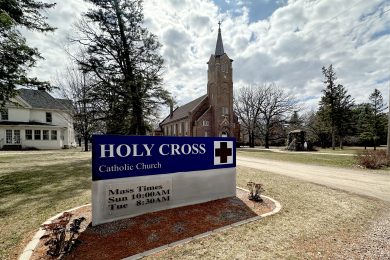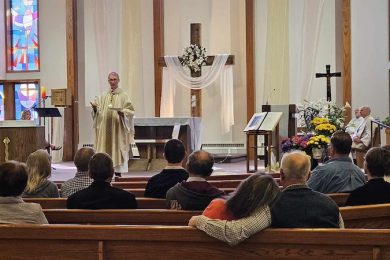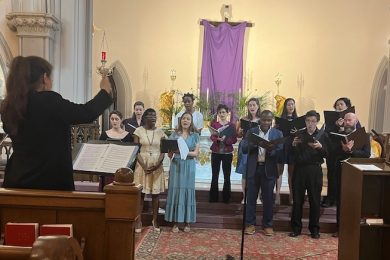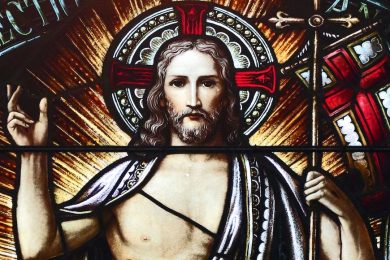“Christian Unity — The Next Step ‘That They May All Be One‘” by Father Kevin E. Mackin, OFM. WestBow Press (Bloomington, Indiana, 2020). 77 pp., $9.95.
By Eugene J. Fisher
In this short and well-written book, Franciscan Father Kevin Mackin argues, convincingly, that now is the time to move forward on reuniting the Christian churches to achieve the goal that Jesus set forth, “that they may all be one” (Jn 17:21).
He uses the motto of the Second Vatican Council, which describes the Catholic Church as “semper reformanda,” always in and always needing reform. In this way he justifies and sees as a constant goal for the church what was and is essential in the theological traditions of the Protestant churches, beginning with Martin Luther.

On the cover of the book are portraits of two popes, St. John XXIII and Pope Francis. It was St. John who in 1959 astonished the Catholic world by announcing that he planned to convene an ecumenical council of the world’s Catholic bishops to read the signs of the times and bring the church in its many ministries up to date with the changing realities, needs and possibilities of the 20th century, which had seen profound changes in economic possibilities, the end of empires and the establishment of new nations and coalitions after enduring two world wars.
Father Mackin begins an excellent narrative of the beginnings, in the late 19th century, of what we today call the ecumenical movement. This came first in the realization by Protestant churches that they were bringing to Africa and Asia a divided, and, indeed, divisive set of Christianities.
So in 1910 representatives of a number of missionary societies came together in Edinburgh, Scotland, to work out ways that they could work together to witness their shared faith in Jesus under the slogan: “Doctrine divides; service unites.” The Life and Work (founded in 1925) and Faith and Order (1927) movements together gave rise to the World Council of Churches, set up in 1948 after the end of the Second World War.
The Catholic Church was most conspicuous for its absence from the council. The churches of the WCC sought ways to cooperate to “fulfill together their common calling to the glory of the one God.”
Though Catholic theologians had been urging ecumenical outreach to Orthodox and Protestant communities it was Vatican II that officially engaged the Catholic Church in the ecumenical movement. Its 1964 decrees on ecumenism and the Eastern churches cited what we hold in common and what might be done to further our common goals.
Father Mackin tells the story of the ups and downs of Christian unity and disunity from the beginning of the ruptures up to the opening of Vatican II, thus placing its decrees in their proper historical context and making them more understandable.
His concluding chapter, “The Church Always Reformable,” draws on the thinking of Catholic theologians and Catholics involved in a variety of ministry to bring forth areas where the churches can work together today to help those in need around the world.
The closer we work together as Christians to fulfill the mandates taught to us all by Jesus the closer we will come to being one church, perhaps still somewhat divided but in essence one church witnessing to the one God of us all.
Catholics and Protestants should read this book, hopefully together, to achieve that common goal.
Eugene Fisher is a professor of theology at St. Leo University in Florida.





















